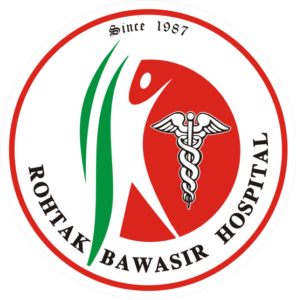Piles and Pregnancy: Causes, Prevention, and Safe Treatments


Updated on: 4th Jun 2024
Pregnant women frequently get piles, commonly called hemorrhoids, as a result of hormonal changes, constipation, and increased strain on the rectal veins. Even though piles can be unpleasant and uncomfortable, managing them during pregnancy can be made easier by being aware of the causes, safe treatment choices, and preventative actions. Everything you need to know about piles during pregnancy will be covered in this extensive book.
What Are Piles?
Swollen veins in the rectum and anus are called piles, and they can hurt, hurt, and even bleed. They might be external (outside the anus) or internal (within the rectum), causing discomfort, itching, and trouble passing stool.
Causes of Piles During Pregnancy

Several factors contribute to the development of piles during pregnancy, including:
1. Increased Pressure on the Rectal Veins
The lower rectum’s veins are under more strain as the uterus grows, which causes swelling and hemorrhoids.
2. Hormonal Changes
Vein relaxation brought on by pregnancy hormones, especially progesterone, increases the risk of congestion and swelling.
3. Constipation
Hormonal changes and prenatal vitamins can lead to constipation, which increases strain during bowel movements, worsening hemorrhoids.
4. Increased Blood Volume
Pregnancy increases blood volume, causing veins to enlarge and increasing the likelihood of piles.
5. Prolonged Sitting or Standing
Remaining in the same position for long periods can reduce circulation and contribute to the development of hemorrhoids.
How to Prevent Piles During Pregnancy

Although piles are common during pregnancy, they can often be prevented by following these simple steps:
1. Eat a High-Fiber Diet
Consuming fiber-rich foods such as fruits, vegetables, whole grains, and legumes helps soften stools and prevent constipation.
2. Stay Hydrated
Drinking at least 8-10 glasses of water daily ensures smooth bowel movements and reduces strain.
3. Avoid Straining During Bowel Movements
Straining can worsen piles. Use a footstool to elevate your legs while sitting on the toilet for better posture.
4. Exercise Regularly
Moderate physical activity, such as walking and prenatal yoga, improves digestion and prevents constipation.
5. Avoid Prolonged Sitting or Standing
Take frequent breaks to improve circulation and reduce pressure on rectal veins.
Safe Treatment Options for Piles During Pregnancy

If you develop piles during pregnancy, there are several safe treatment options to alleviate discomfort and promote healing.
1. Home Remedies
- Cold Compress: Applying an ice pack can reduce swelling and numb pain.
- Sitz Baths: Soaking in warm water for 15-20 minutes can relieve itching and discomfort.
- Aloe Vera Gel: Natural aloe vera has anti-inflammatory properties that soothe irritated skin.
2. Over-the-Counter Medications
- Topical Creams & Ointments: Doctor-approved hemorrhoid creams containing witch hazel or hydrocortisone can provide relief.
- Stool Softeners: These can help prevent constipation and reduce straining.
3. Kegel Exercises
Performing Kegel exercises strengthens pelvic floor muscles, improves circulation, and reduces pressure on rectal veins.
4. Medical Procedures (For Severe Cases)
If piles become severe and do not respond to home treatments, medical interventions such as rubber band ligation, sclerotherapy, or minimally invasive laser treatments may be necessary. However, these should only be considered after consulting with a healthcare provider.
Conclusion
Piles during pregnancy can be managed effectively with the right preventive measures and safe treatment options. By maintaining a healthy diet, staying hydrated, exercising regularly, and using gentle remedies, pregnant women can reduce the risk of hemorrhoids and find relief from discomfort. If symptoms persist, consulting a doctor is crucial for proper medical advice and treatment.
By staying informed and proactive, you can ensure a healthier and more comfortable pregnancy journey.
Meet Our Specialists

Dr. Raj Kumar Garg (B.A.M.S.)
40+ Years of Experience

Dr. Rahul Garg (B.A.M.S.)
15+ Years of Experience

